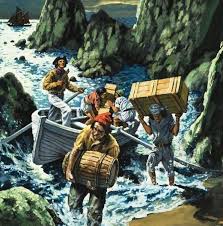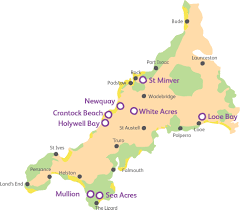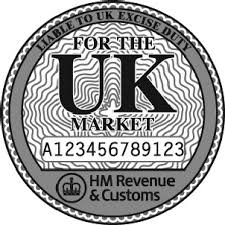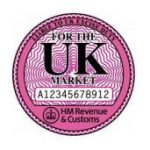 During the 18th Century smuggling in Cornwall was a way of life. It is said that at its peak, more than 500,000 gallons of French brandy was smuggled in per year. This equates to more than two million bottles. Whole families were involved and the number of smugglers far outweighed the number of Excise men stationed along the coast to stop them. There was a strong incentive to continue since the cost of buying brandy legally, with Alcohol Duty paid, was five times greater than the cost of the contraband. It was often the case that even the judiciary, doctors and priests were in on the act as they provided the funds.
During the 18th Century smuggling in Cornwall was a way of life. It is said that at its peak, more than 500,000 gallons of French brandy was smuggled in per year. This equates to more than two million bottles. Whole families were involved and the number of smugglers far outweighed the number of Excise men stationed along the coast to stop them. There was a strong incentive to continue since the cost of buying brandy legally, with Alcohol Duty paid, was five times greater than the cost of the contraband. It was often the case that even the judiciary, doctors and priests were in on the act as they provided the funds.
 Most of the brandy came from the ports of La Rochelle and Rochefort and illegal shipments arrived regularly at Falmouth coves such as Helford, Gweek, Porthallow and Godrevy. The French were still reducing their wines for easier transportation to England, Ireland and Holland. The quantity of brandy shipped to England did much to support the French brandy industry during the 18th Century. However, by the early 1800s Customs had started to gain a level of control. Some smugglers were apprehended but juries were often reluctant to convict as many had connections with the trade. Even by the mid 19th Century, £millions were still being lost due to the Cornish smugglers evading tax.
Most of the brandy came from the ports of La Rochelle and Rochefort and illegal shipments arrived regularly at Falmouth coves such as Helford, Gweek, Porthallow and Godrevy. The French were still reducing their wines for easier transportation to England, Ireland and Holland. The quantity of brandy shipped to England did much to support the French brandy industry during the 18th Century. However, by the early 1800s Customs had started to gain a level of control. Some smugglers were apprehended but juries were often reluctant to convict as many had connections with the trade. Even by the mid 19th Century, £millions were still being lost due to the Cornish smugglers evading tax.
 Alcohol Duty is of course an important part of the British tax system and is calculated today at a cost of £28.74 per litre of pure spirit. A 70cl bottle of brandy at 40% alcohol by volume (abv) therefore attracts a duty of £8.05. Shipments of cognac to the UK currently stand at more than 12 million bottles per annum and the duty collected is around £100 million.
Alcohol Duty is of course an important part of the British tax system and is calculated today at a cost of £28.74 per litre of pure spirit. A 70cl bottle of brandy at 40% alcohol by volume (abv) therefore attracts a duty of £8.05. Shipments of cognac to the UK currently stand at more than 12 million bottles per annum and the duty collected is around £100 million.
It goes without saying that smuggling today is vastly reduced. The sale of illegal spirits does much harm to our industry. All shipments of spirits entering the country must be accompanied by documentation stating the quantity of pure spirit they contain. Duty must be paid when the alcohol enters the country, unless it is to be stored in a bonded warehouse. In this case, Duty is paid when the alcohol is taken out of the bond. All UK companies dealing in wines and spirits must be registered with HM Customs.
 The level of Duty imposed on alcohol purchases is always a hot topic. Before the recent UK budget, a group of WSTA SMEs wrote to the chancellor asking for a 2% cut in order to help small British companies, like Hermitage Cognacs, invest and grow. Currently the UK has some of the highest alcohol taxes in the world. As we now know, Rishi Sunak did not cut alcohol duty but neither did he increase it by the proposed 2.2%. Something to be thankful for especially since earlier in the year, some UK health organisations were lobbying the government to put Duty up by 2 % above inflation. They argued that alcohol places an undue burden on public services so the extra funds collected could be used to boost the number of nurses or policemen. One really hopes that following the Covid-19 crisis the public will be far more aware of the effect of unnecessarily burdening our public services.
The level of Duty imposed on alcohol purchases is always a hot topic. Before the recent UK budget, a group of WSTA SMEs wrote to the chancellor asking for a 2% cut in order to help small British companies, like Hermitage Cognacs, invest and grow. Currently the UK has some of the highest alcohol taxes in the world. As we now know, Rishi Sunak did not cut alcohol duty but neither did he increase it by the proposed 2.2%. Something to be thankful for especially since earlier in the year, some UK health organisations were lobbying the government to put Duty up by 2 % above inflation. They argued that alcohol places an undue burden on public services so the extra funds collected could be used to boost the number of nurses or policemen. One really hopes that following the Covid-19 crisis the public will be far more aware of the effect of unnecessarily burdening our public services.
 During the 18th Century smuggling in Cornwall was a way of life. It is said that at its peak, more than 500,000 gallons of French brandy was smuggled in per year. This equates to more than two million bottles. Whole families were involved and the number of smugglers far outweighed the number of Excise men stationed along the coast to stop them. There was a strong incentive to continue since the cost of buying brandy legally, with Alcohol Duty paid, was five times greater than the cost of the contraband. It was often the case that even the judiciary, doctors and priests were in on the act as they provided the funds.
During the 18th Century smuggling in Cornwall was a way of life. It is said that at its peak, more than 500,000 gallons of French brandy was smuggled in per year. This equates to more than two million bottles. Whole families were involved and the number of smugglers far outweighed the number of Excise men stationed along the coast to stop them. There was a strong incentive to continue since the cost of buying brandy legally, with Alcohol Duty paid, was five times greater than the cost of the contraband. It was often the case that even the judiciary, doctors and priests were in on the act as they provided the funds. Most of the brandy came from the ports of La Rochelle and Rochefort and illegal shipments arrived regularly at Falmouth coves such as Helford, Gweek, Porthallow and Godrevy. The French were still reducing their wines for easier transportation to England, Ireland and Holland. The quantity of brandy shipped to England did much to support the French brandy industry during the 18th Century. However, by the early 1800s Customs had started to gain a level of control. Some smugglers were apprehended but juries were often reluctant to convict as many had connections with the trade. Even by the mid 19th Century, £millions were still being lost due to the Cornish smugglers evading tax.
Most of the brandy came from the ports of La Rochelle and Rochefort and illegal shipments arrived regularly at Falmouth coves such as Helford, Gweek, Porthallow and Godrevy. The French were still reducing their wines for easier transportation to England, Ireland and Holland. The quantity of brandy shipped to England did much to support the French brandy industry during the 18th Century. However, by the early 1800s Customs had started to gain a level of control. Some smugglers were apprehended but juries were often reluctant to convict as many had connections with the trade. Even by the mid 19th Century, £millions were still being lost due to the Cornish smugglers evading tax. Alcohol Duty is of course an important part of the British tax system and is calculated today at a cost of £28.74 per litre of pure spirit. A 70cl bottle of brandy at 40% alcohol by volume (abv) therefore attracts a duty of £8.05. Shipments of
Alcohol Duty is of course an important part of the British tax system and is calculated today at a cost of £28.74 per litre of pure spirit. A 70cl bottle of brandy at 40% alcohol by volume (abv) therefore attracts a duty of £8.05. Shipments of